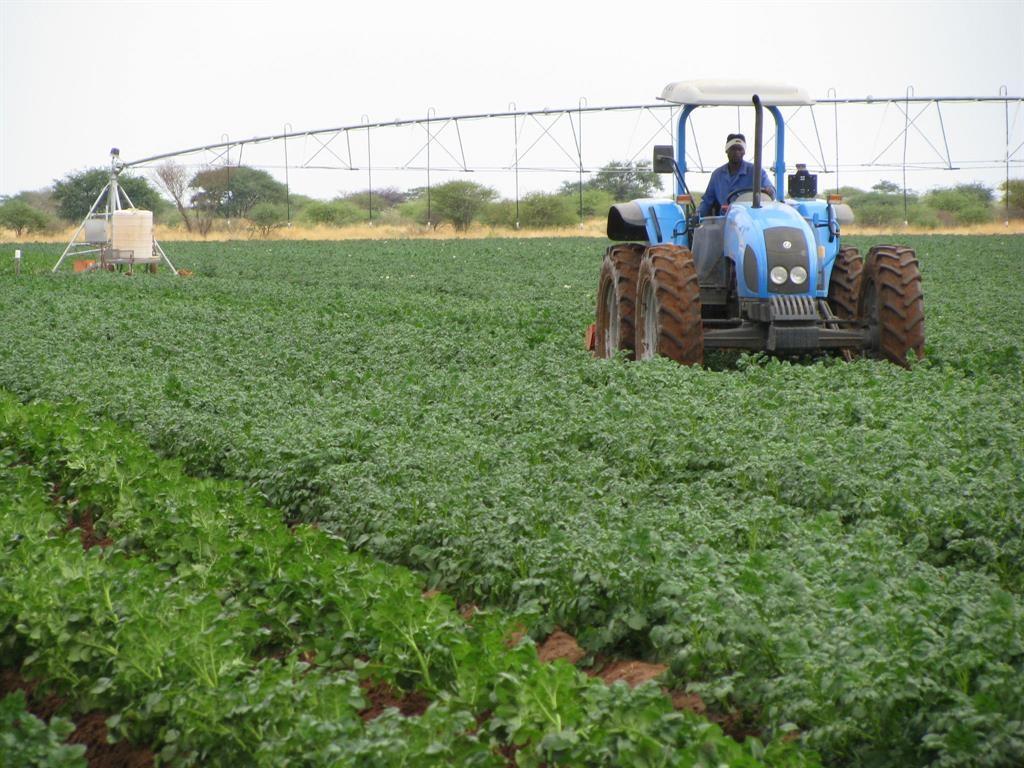Reliance on food imports risky
The country’s reliance on food imports offers an opportunity for Namibians to engage in food production, the prime minister said.
ELLANIE SMIT
WINDHOEK
About 18% of Namibians are food insecure and depend on food relief programmes, although this trend has dropped from 34% five years ago.
Prime Minister Saara Kuugongelwa-Amadhila said Namibia has good food markets, and these create dependence on markets and less growing of food at household level.
She said recent statistics indicate that Namibia imports up to 12.6% of its local food requirements, with South Africa being the largest source of food imports, followed by Zambia.
According to her, this situation offers an opportunity for Namibians to engage in food production, as it confirms that there is a local market for the products that are currently imported.
She said reducing reliance on imports will also support local economic growth and deal with joblessness which is pervasive, especially among women and the youth.
Kuugongelwa-Amadhila was speaking at the launch of the revised National Food and Nutrition Security Policy at Nakalega Irrigation Project in the Oshana Region.
Security risk
“With fragility in the global economy caused by the global economic downturn and the concomitant effect of the Covid-19 pandemic that causes supply-chain disruptions, too much reliance on imports for basic foods is a security risk due to possible shutdowns, lockdowns and slowdowns in global trade.”
According to her, after a comprehensive review and extensive consultations, the revised policy was approved by Cabinet in September.
The policy aims to increase investment in food security, and boost domestic food production, processing and marketing.
It further aims to reduce the prevalence of undernourishment and stunting through nutrition-sensitive interventions.
“Through the food system approach, which is also the scope for this policy, the focus is on all aspects of food from preparation to consumption.”
Stunting
Kuugongelwa-Amadhila said a recent study estimated that stunted children are 23.6% more prone to repeating grades at school than well-nourished children, with associated high costs estimated at N$295.5 million. The stunting impact on adults is manifested in less productivity, leading to loss in gross domestic product of N$410 million annually.
The study also shows that households do not consume enough fruit and vegetables.
It said there are households whose food purchases are up to 95% of their consumption, meaning that almost everything they eat is bought.
“Little or nothing is grown at home. The key questions we are asking now are how do we reverse the trend on too much imports, and how do we address stunting and malnutrition in our country. The answers to such fundamental questions lie in our ability to transform the way we look at food systems.”
[email protected]
WINDHOEK
About 18% of Namibians are food insecure and depend on food relief programmes, although this trend has dropped from 34% five years ago.
Prime Minister Saara Kuugongelwa-Amadhila said Namibia has good food markets, and these create dependence on markets and less growing of food at household level.
She said recent statistics indicate that Namibia imports up to 12.6% of its local food requirements, with South Africa being the largest source of food imports, followed by Zambia.
According to her, this situation offers an opportunity for Namibians to engage in food production, as it confirms that there is a local market for the products that are currently imported.
She said reducing reliance on imports will also support local economic growth and deal with joblessness which is pervasive, especially among women and the youth.
Kuugongelwa-Amadhila was speaking at the launch of the revised National Food and Nutrition Security Policy at Nakalega Irrigation Project in the Oshana Region.
Security risk
“With fragility in the global economy caused by the global economic downturn and the concomitant effect of the Covid-19 pandemic that causes supply-chain disruptions, too much reliance on imports for basic foods is a security risk due to possible shutdowns, lockdowns and slowdowns in global trade.”
According to her, after a comprehensive review and extensive consultations, the revised policy was approved by Cabinet in September.
The policy aims to increase investment in food security, and boost domestic food production, processing and marketing.
It further aims to reduce the prevalence of undernourishment and stunting through nutrition-sensitive interventions.
“Through the food system approach, which is also the scope for this policy, the focus is on all aspects of food from preparation to consumption.”
Stunting
Kuugongelwa-Amadhila said a recent study estimated that stunted children are 23.6% more prone to repeating grades at school than well-nourished children, with associated high costs estimated at N$295.5 million. The stunting impact on adults is manifested in less productivity, leading to loss in gross domestic product of N$410 million annually.
The study also shows that households do not consume enough fruit and vegetables.
It said there are households whose food purchases are up to 95% of their consumption, meaning that almost everything they eat is bought.
“Little or nothing is grown at home. The key questions we are asking now are how do we reverse the trend on too much imports, and how do we address stunting and malnutrition in our country. The answers to such fundamental questions lie in our ability to transform the way we look at food systems.”
[email protected]





Comments
Namibian Sun
No comments have been left on this article